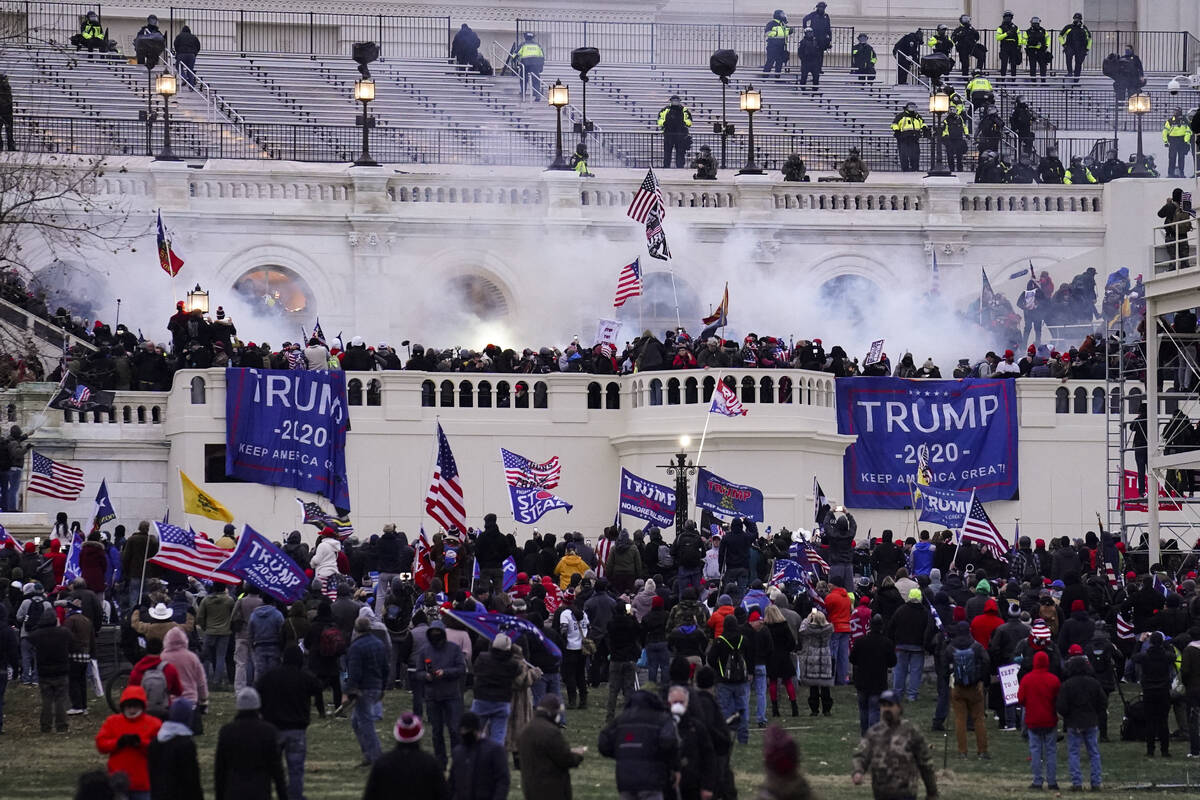Bipartisan electoral vote reform set in wake of Jan. 6 attack
The U.S. Senate is expected to vote on a bill that aims to prevent another president from trying to retain power after losing an election.
The Electoral Count Reform and Presidential Transition Improvement Act of 2022 — which arose from the Jan. 6, 2021 attack on the Capitol — would reform and modernize an 1887 law and change the process of casting and counting electoral votes for presidential elections.
It’s set to be included in a must-pass, year-end spending bill that will be heading to President Joe Biden for a signature.
“The right of every eligible American to have their voices heard in a presidential election is the foundation of our democracy, and we must protect the will of the American people,” said U.S. Sen. Jacky Rosen, D-Nev., who was a co-sponsor of the legislation, in a statement.
“To prevent future attempts to overturn fair elections, this bipartisan legislation will take steps to promote the peaceful and orderly transfer of power,” Rosen said. “That is why I support this commonsense legislation and look forward to helping ensure it becomes law.”
The bill specifies that only governors can submit electoral certificates for their state, clarifies that the vice president cannot reject electoral votes and raises the threshold necessary for members of Congress to object to a state’s electors from one member to at least one-fifth of sworn members in both the Senate and the House of Representatives.
As of Monday night the Senate has not voted on the bill, but it is expected to receive bipartisan support as both Majority Leader Chuck Schumer, D-N.Y., and Minority Leader Mitch McConnell, R-Ky., support it.
Bipartisan support
The legislation was introduced in July 2022 by Sen. Susan Collins, R-Maine, and in September advanced through the bipartisan Senate Rules Committee made up of nine Democrats and nine Republicans in a 14-1 vote. More than 35 senators, both Republicans and Democrats, have co-sponsored the legislation.
It aims to ensure electoral votes tallied by Congress accurately reflect each state’s vote for president and will promote a peaceful transition of power between the outgoing and incoming president, according to a joint statement from Sens. Shelley Moore Capito, R-W.Va., and Joe Manchin, D-W.Va., in September.
“I have long-championed our decentralized electoral system, which gives states the power to design and enforce their election laws to meet the needs of their constituents,” said Capito in the statement. “That is why I proudly joined the Senate working group to introduce the Electoral Count Reform and Presidential Transition Improvement Act.”
The legislation specifies that the choice of electors must occur in accordance with the laws of the state, according to the bill’s language, and it identifies each state’s governor as the person responsible for submitting the certificate of the vote, unless a different official is named in the laws or constitutions of a state.
No fake certificates
Under the bill, Congress will have to defer to slates of electors submitted by a state’s governor and would not be able to accept a slate submitted by a different official, which would address the potential scenario in which multiple state officials send Congress competing slates of elective votes.
In 2020, Republican groups in several battleground states — including Nevada — sent fake electoral certificates falsely decreeing Trump as the winner. In Nevada on Dec. 14, 2020, six Trump electors headed by Nevada Republican Party Chairman Michael McDonald met outside the legislative building in Carson City, signed their version of an electoral certificate declaring Trump as the winner of Nevada and sent the documents to Congress.
Meanwhile, Nevada’s real electors met in a remote ceremony overseen by Secretary of State Barbara Cegavske and certified all six of Nevada’s electoral votes for the actual winner of the election, Joe Biden. That certificate of ascertainment for the slate of electors was signed by Democratic Gov. Steve Sisolak.
If a presidential or vice-presidential candidate brings up a claim in regard to the issuance of an electoral certificate, the legislation provides for an expedited judicial review with a three-judge panel, according to a fact sheet on the legislation.
Vice president’s role
The bill also specifies that the role of the vice president during the joint session shall be “ministerial in nature” and states that the vice president “does not have any power to solely determine, accept, reject or otherwise adjudicate disputes over electors,” according to the fact sheet on the legislation.
Trump falsely told his supporters after the 2020 election that Vice President Mike Pence had the power to reject electoral votes that were already certified by the states. Pence stated that he did not have the constitutional authority to do that and certified the electoral votes for Biden.
On Jan. 6, 2021, embracing Trump’s contention that the vice president can reject electoral votes, Trump supporters went to the Capitol and chanted, “Hang Mike Pence!” according to the Washington Post.
The legislation also removes a provision of an 1845 law that could be used by state legislatures to override the popular vote in their states by declaring a “failed election,” which is a term that is not defined in the law, according to the fact sheet. It specifies that a state could move its presidential Election Day only if necessitated by “extraordinary and catastrophic” events, the fact sheet says.
Contact Jessica Hill at jehill@reviewjournal.com. Follow @jess_hillyeah on Twitter.































